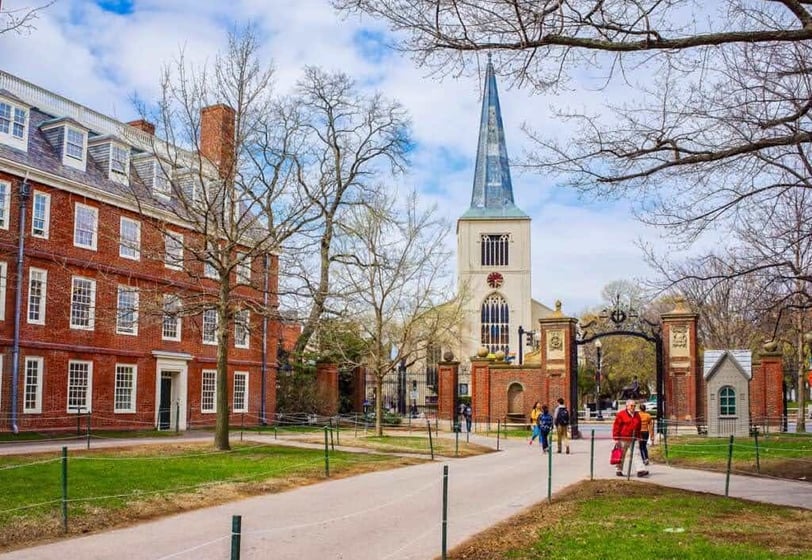Trump Administration Accuses Harvard of Antisemitism, Threatens to Cut Federal Funding Amid Gaza Protest Fallout
The Trump administration threatens to strip Harvard University of federal funding over alleged antisemitic harassment tied to campus protests against Israel's war on Gaza. The move intensifies a growing standoff over free speech, academic freedom, and political dissent on U.S. campuses.
GLOBAL
Refaat Ibrahim
7/1/20254 min read


White House Escalates Against Harvard: Antisemitism Allegations and Funding Threats Amid Gaza Protest Controversy
In an unprecedented move, the Trump administration has accused Harvard University of violating the civil rights of Jewish and Israeli students, threatening to strip the institution of all federal funding.
The federal task force's letter to Harvard President Alan Garber cited findings that the university was either "deliberately indifferent" or "actively complicit" in instances of antisemitic harassment against Jewish faculty, students, and staff.
This dramatic escalation is the latest chapter in a growing conflict between the U.S. government and top academic institutions, as tensions surge over campus protests against Israel’s war on Gaza.
The administration’s actions, which include freezing billions in research grants and threatening international student enrollment, have raised alarm bells about academic freedom, political dissent, and the boundaries of civil discourse in the U.S.
Harvard Accused of Fostering Hostility Toward Jewish Students
According to the federal task force, a significant majority of Jewish students at Harvard reported experiencing discrimination, and at least 25% expressed concerns for their physical safety. The letter warned that unless Harvard made “immediate and substantial changes,” it would face the loss of all federal financial support.
The letter did not specify which reforms were required, but it made clear that the administration expects structural shifts in university policy.
Harvard quickly responded, rejecting the accusations as “unfounded” and emphasizing that it has taken “substantial, proactive steps” to combat antisemitism and protect its Jewish and Israeli community members.
“We remain committed to ensuring that Jewish and Israeli members of our community are respected, supported, and able to thrive at Harvard,” the university stated.
Harvard also called the federal intervention politically motivated, hinting that the real motive behind the move is retaliation for the university’s handling of recent protests and its refusal to conform to federal demands.
Gaza War Protests Ignite Campus-Wide Backlash
The wider context of this conflict is deeply rooted in the nationwide student protests that erupted following Israel’s military campaign in Gaza, which began in October 2023. Thousands of students across American campuses, including many Jewish students, have criticized Israel’s actions, calling for an end to U.S. military and political support.
President Trump labeled these protests “illegal” and equated them with antisemitism, even though many of their organizers included Jewish voices opposing Israeli policy. In response, the administration launched investigations targeting universities perceived to tolerate or enable such dissent.
Funding Freeze, Visa Threats, and Federal Pressure Mount
In a sweeping move, the Trump administration froze an estimated $2.5 billion in federal research grants allocated to Harvard. It also threatened to bar the university from enrolling new international students and hinted at revoking Harvard’s longstanding tax-exempt status.
Federal demands went far beyond typical civil rights reviews. Harvard was ordered to:
Eliminate all forms of affirmative action in student admissions and faculty hiring.
Dissolve student groups accused of “criminal conduct” or “harassment.”
Change admissions policies to block international students deemed hostile to “American values,” including those accused of supporting terrorism or antisemitism.
Harvard rejected these demands and filed a lawsuit against the Trump administration, calling the actions “retaliatory” and “legally baseless.”
Broader Crackdown Targets U.S. Universities
Harvard is not alone. The federal government has expanded its crackdown to other major institutions:
Columbia University: Lost $400 million in federal support after protests. The university later conceded to federal demands, modifying disciplinary policies and reviewing its Middle East Studies program.
Cornell and Northwestern: Faced federal scrutiny for allowing “pro-Palestinian activism,” with vague allegations of antisemitism still under review.
University of Virginia: President James Ryan resigned, citing pressure from the government over diversity, equity, and inclusion efforts.
University of California System: Now under investigation for discriminatory hiring practices, potentially affecting over 300,000 students.
Free Speech vs. Political Enforcement: Where’s the Line?
The aggressive measures have ignited a national debate on the limits of federal oversight and the future of academic freedom. Civil liberties organizations and faculty unions have decried the government’s actions as politically charged censorship.
“Is peaceful protest against foreign policy now considered a federal offense?” asked a statement from the academic advocacy group Scholars for Justice.
Jewish students involved in anti-war protests also pushed back, accusing the administration of using antisemitism as a political weapon to silence criticism of Israel.
The core of the issue is the administration’s vague and expansive definition of antisemitism, one that equates criticism of Israeli government policy with hatred toward Jews, even when Jewish voices lead the criticism.
Academic and Research Communities at Risk
The threat to strip Harvard of federal funding and restrict international student enrollment has alarmed academics across the country. Research institutions warn that such measures could cripple innovation, undermine global cooperation, and force elite scholars to seek opportunities abroad.
American universities, which attract tens of thousands of international students and researchers each year, are facing an unprecedented challenge: comply with politically motivated federal mandates or risk financial ruin and reputational damage.
Conclusion: More Than a Dispute, a Battle Over Values
What began as a policy disagreement has morphed into a full-blown ideological confrontation. At stake is the very nature of free speech, academic integrity, and the role of universities in a democracy.
The Trump administration appears determined to reshape American higher education through pressure and punitive measures. Harvard and its peers, meanwhile, are fighting to preserve autonomy, uphold inclusive values, and protect their students, regardless of background, from politically motivated attacks.
As protests continue and legal battles unfold, the conflict between Washington and the academic world is far from over.
Awareness
Documenting reality, amplifying Palestinian voices, raising awareness.
Contact Us:
resistant.p.pens@gmail.com
Follow our social media
